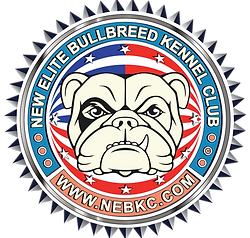
N E B K C
Ichtyosis (American Bulldog)
Ichthyosis is a family of genetic skin disorders characterized by dry, thickened, scaly skin. Ichthyosis comes from the Greek ἰχθύς ichthys, literally "fish", since dry, scaly skin is the defining feature of all forms of ichthyosis.
Other Names:Autosomal recessive congenital ichthyosis, Nonepidermolytic ichthyosis, ARCI
Affected Genes: NIPAL4
Inheritance: Autosomal Recessive
Mutation:Deletion
Common Symptoms
Ichthyosis (American bulldog type) is an inherited condition of the skin affecting American bulldogs. Affected dogs present as early as 1-2 weeks of age with flaky skin and a scruffy haircoat when compared to normal littermates. Typically before 6 weeks of age the skin of the abdomen is reddened, wrinkled, and covered by light brown scales. As the dog ages the sparsely haired areas of the dog become red-brown with adhered brown scales and large white to tan scales are found throughout the haircoat. Dogs may also have thickened footpads. Affected dogs are at increased risk for infections of the skin, ears, and footpads and may require treatment for these infections throughout their lives.
Breed-Specific Information for the American Bulldog
The Mutation of the NIPAL4 gene associated with ichthyosis (American bulldog type) has been identified in the American bulldog. Though the exact frequency in the overall American bulldog population is unknown, approximately 34.3% out of 800 American bulldogs from North America, Australia, and Europe were carriers of the mutation and approximately 5% were at-risk/affected.
Testing Tips
Genetic testing of the NIPAL4 gene in American bulldogs will reliably determine whether a dog is a genetic Carrier of ichthyosis (American bulldog type). Ichthyosis (American bulldog type) is inherited in an Autosomal Recessive manner in dogs meaning that they must receive two copies of the mutated gene (one from each parent) to develop the disease. In general, carrier dogs do not have features of the disease but when bred with another carrier of the same Mutation, there is a risk of having affected pups. Each pup that is born to this pairing has a 25% chance of inheriting the disease and a 50% chance of inheriting one copy and being a carrier of the NIPAL4 gene mutation. Reliable genetic testing is important for determining breeding practices. In order to eliminate this mutation from breeding lines and to avoid the potential of producing affected pups, breeding of known carriers to each other is not recommended. American bulldogs that are not carriers of the mutation have no increased risk of having affected pups.
There may be other causes of this condition in dogs and a normal result does not exclude a different mutation in this gene or any other gene that may result in a similar genetic disease or trait.
